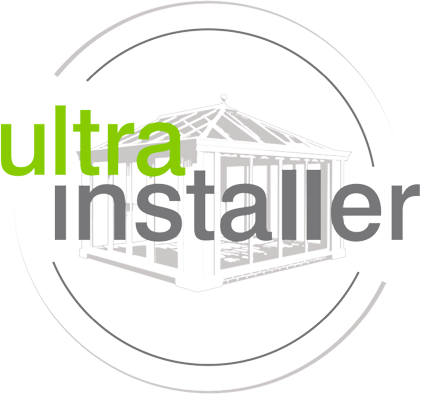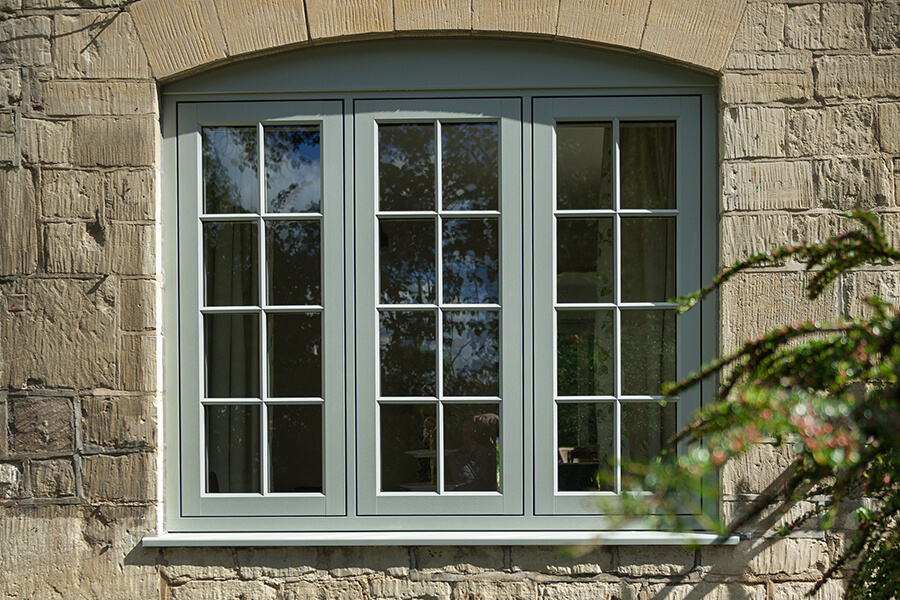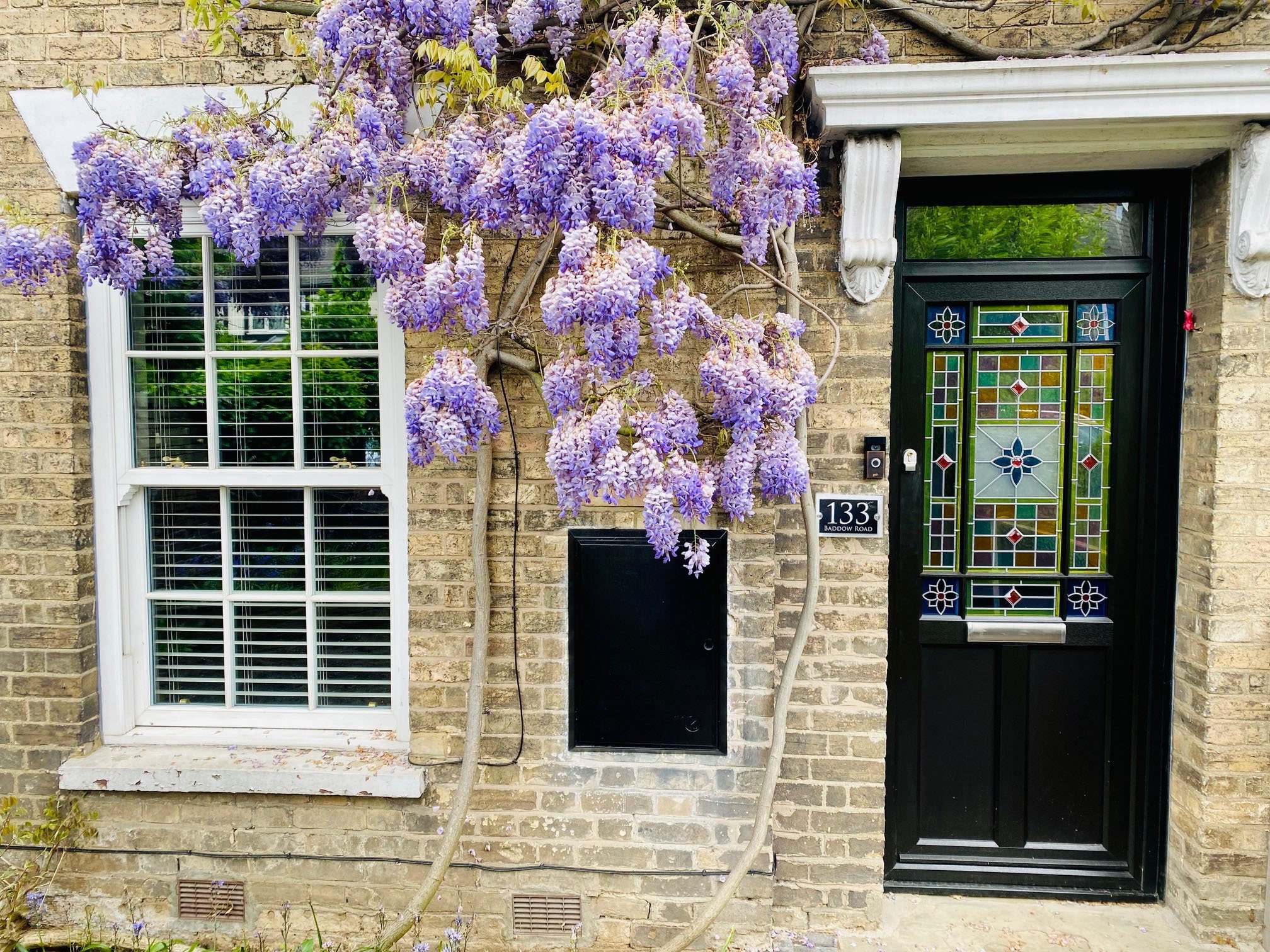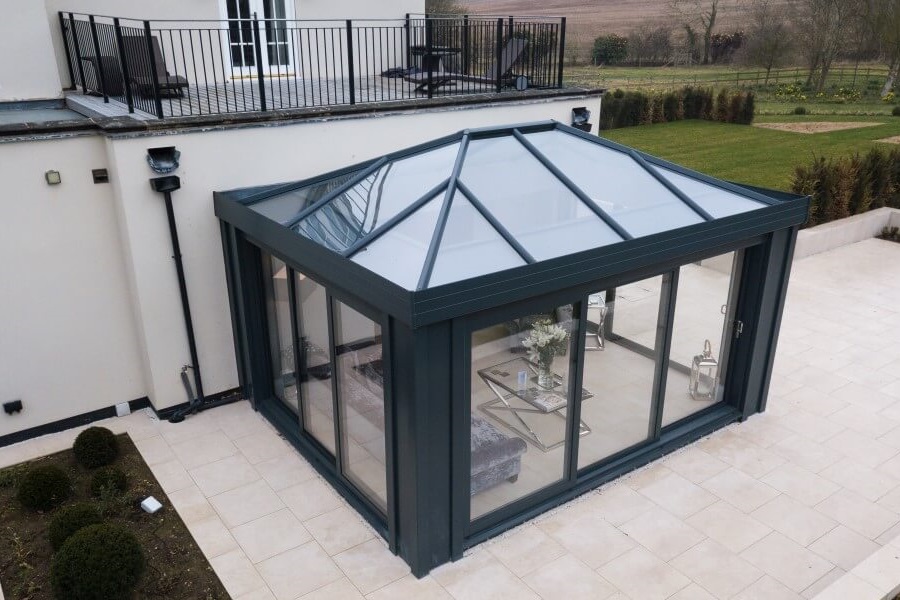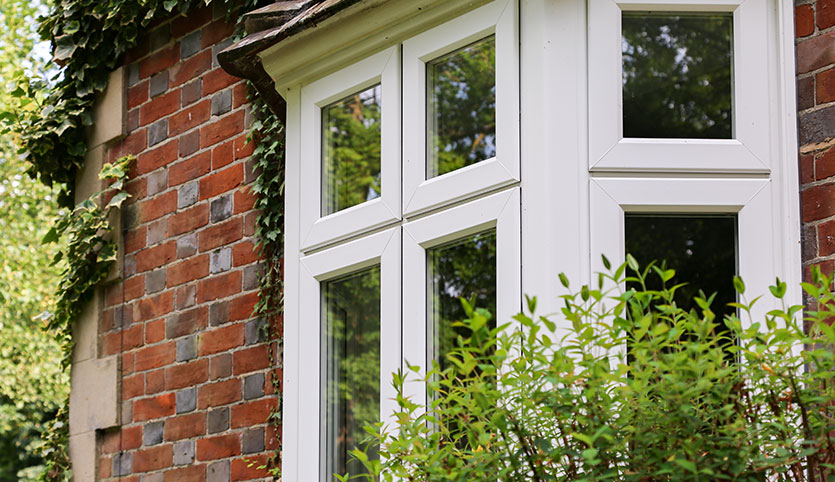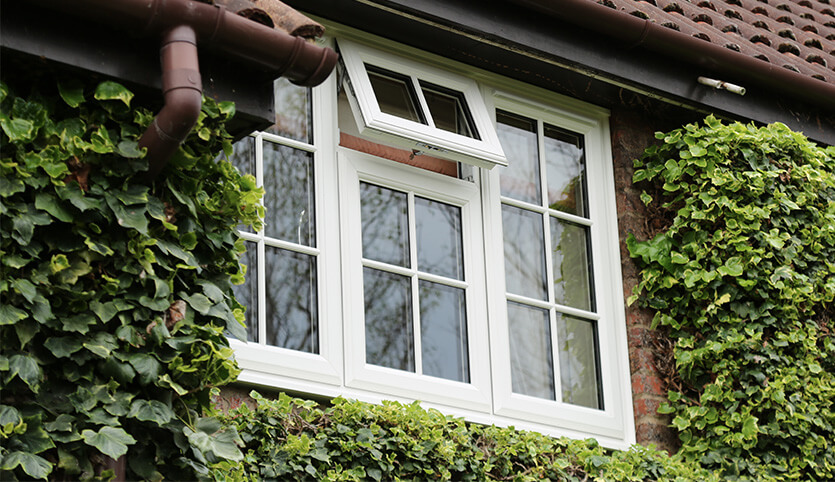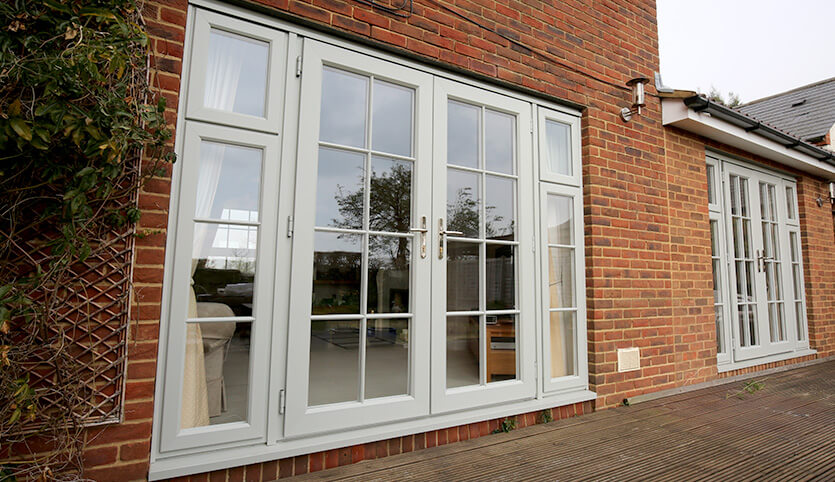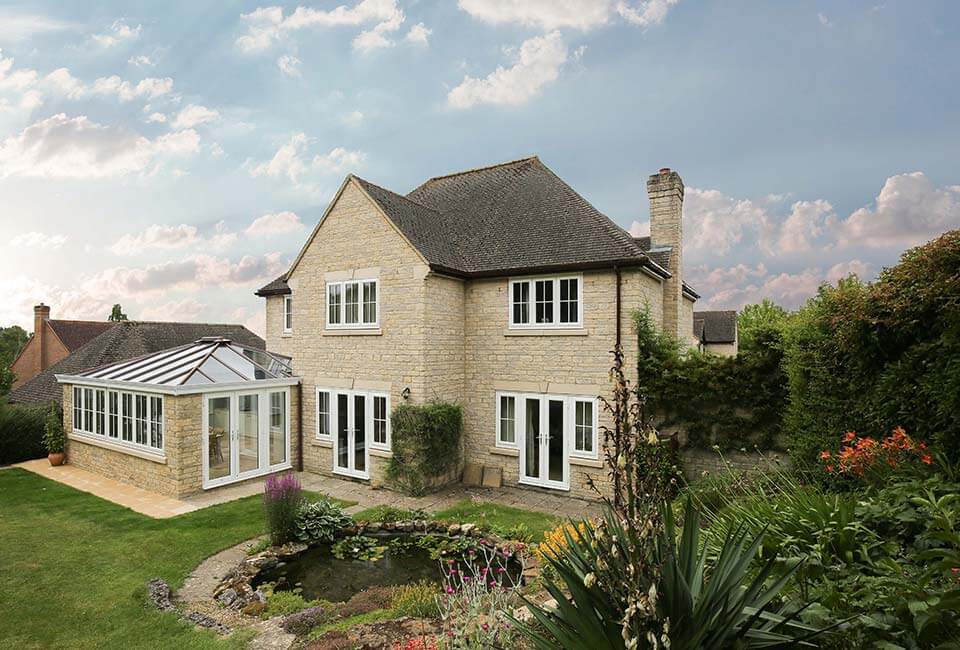Improve the energy efficiency of your Ipswich, Essex and Surrey home
Your windows and doors are the biggest source of heat loss in your South East home. Energy improvements can easily be made by upgrading your windows and doors or replacing the roof on an existing conservatory. Improving your property’s energy performance will save you money on your heating bills, improve your carbon footprint and help you live more sustainably.
Contact UsUpgrade your windows
Windows are responsible for around 10-20% of heat loss in your home and old single glazed or double glazed windows will be letting heat out and draughts in. Frame materials such as uPVC and aluminium are incredibly thermally efficient, while energy efficient double glazing will stop energy wastage and ensure a comfortable temperature inside your home all year round.
Upgrade your doors
Old, worn doors that are poorly insulated, particularly ones that may not have been fitted or sealed properly, will be letting draughts into your home. A replacement door will be better insulated and are also likely to fit much tighter in the door frame so cold spots are eliminated. Aluminium doors feature a unique polyamide thermal break that prevents the flow of draughts between the outer door frame and inside your home, improving thermal efficiencies by at least 30% and preventing A+ energy ratings and low U-values. Composite doors are made up of densely designed panels to eliminate any draughts from entering a home and a solid core to stop the warmth being lost and can feature both single and double rebates for additional energy efficiency.
Upgrade your conservatory roof
If your existing conservatory has an old glass or polycarbonate roof then it will be playing a big part in it being too cold to use in the winter and too hot to use in the summer. A replacement solid tiled or glass conservatory roof will improve your conservatory’s energy efficiency and allow you to use it as a space for all the family 365 days of the year.
Tiled conservatory roofs: Made from lightweight composite tiles that won’t rot, fade or wear down, the heat-absorbing materials will retain the warmth of your home when its cold outside and there is no risk of condensation.
Glass conservatory roofs: Custom-made glass roofs with high-performance Smartglass will let in as much natural sunlight as possible and have incredibly low U-values that surpass building regulations for greater thermal performances.
Solid conservatory roofs: Combining high-performance glazing panels with lightweight composite panels to provide great thermal performance.
Energy efficient glazing
When the sun shines, your windows absorb the heat. Energy efficient double glazing such as EcoMAX Glass™ provides excellent thermal performance. If your home is exposed to harsher weather, then Comfort glass, which features a Smart low-e coating, provides the same level of insulation as a triple glazed unit and stops 56% more internal heat escaping.
How much will I save with new windows and doors?
By upgrading your older windows with contemporary, energy-efficient replacements, you can lower your heating bills throughout the year. As per the Energy Saving Trust, when you upgrade to A-rated double glazing on windows in a previously single-glazed, semi-detached property heated by gas, potential savings could amount to £145 annually and a reduction of 335kg in carbon dioxide emissions. Opting for A++ rated double glazed windows instead of single glazing could elevate the potential savings to as much as £175 per year and a reduction of 410kg in carbon dioxide emissions.
Energy ratings
Window and door manufacturers can show the energy efficiency of their products using an energy-rating scale from A++ to E. The most energy efficient windows are those of an A+ rating, which allow more energy into a property than they lose. A-rated efficiency windows virtually lock the heat inside your home while blocking the cold out, containing and conserving heat within your home in the winter and preventing heat transfer so your home is kept cooler during the summer. Look for the British Fenestration Rating Council (BFRC) rating.
U-Values
Windows featuring an energy rating will display the 'U-Value' of the window on the energy label. The U-Value represents the degree to which heat moves through a material, although it doesn't provide a comprehensive assessment of a window's efficiency. For a more comprehensive understanding of a window's energy-saving capabilities, the overall label rating will offer a more accurate indication.
Multi-award winning company
Here at FineLine, we’re proud to have won many prestigious awards for our products as well as our work in the community:
Learn more
We’re one of the largest regional retail companies


Vetted for professionalism, competency & compliancy

Our Accreditations



